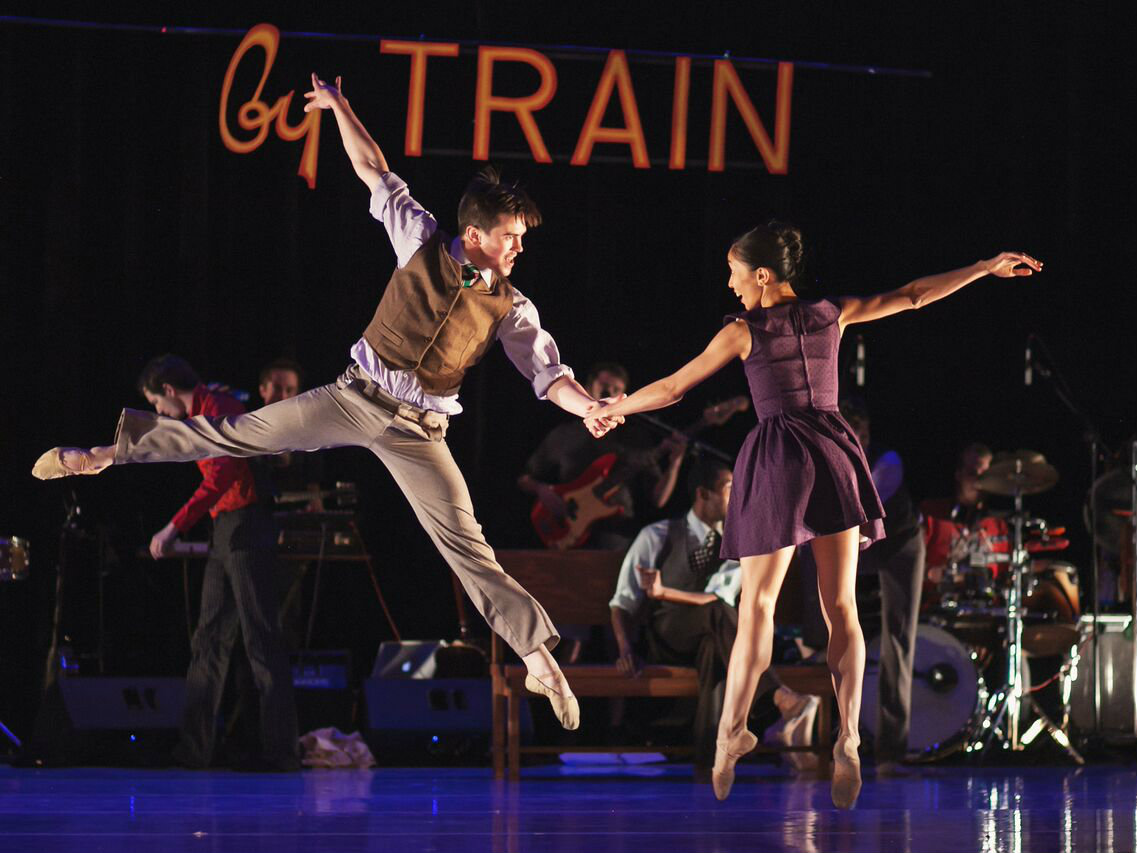
Denver’s population boom has inspired a new work from Wonderbound, the Denver-based contemporary dance company. It's called "Boomtown," and it's a collaboration with the indie-folk group Chimney Choir. The band wrote 25 new songs for the ballet, which premiered in April, but returns this weekend at the Arvada Center for the Arts and Humanities.
"Colorado Matters" host Ryan Warner spoke with Chimney Choir band member David Rynhart. Click on the audio link above to hear the conversation. Edited highlights are below.
How the collaborators decided on a piece about Denver's growth:
Rynhart: "We didn't know what we were going to do a show about when we first met. We had some meetings and just talked with each other casually and tried to figure out what was imminent in our experience together. [...]
It's what everyone's experiencing, it's affecting everyone's life, whether you're moving here or you're here and noticing all the construction and changes.
How characters in the production were inspired by real life:
Rynhart: "All the prominent characters we took from characters that have been in Denver before. Johnny Alpha is based on Johnny Valentine, who started a national floral distribution company. [...]
The reporter character is based on some prominent journalists and authors.
The most interesting one would be the criminal character, who's also the mayor. We just kept the name "Soapy Smith," an actual character from the late 1800s in Denver. Very famous for just making rackets, fixing elections, swindling people, that kind of thing."
What the rubber duck means for "Boomtown":
Rynhart: "So, without giving away too much, the rubber duck is a way of commenting on how people assign importance to a seemingly arbitrary substances that can cause a boom. [...]
We reference prohibition [in addition to marijuana legalization] in thinking about how you can repress a substance and cause a cultural stir, cultural practices around who wants it and who doesn't. [...] So we reference the prohibition and after and then look at this very modern situation with legalization here."








